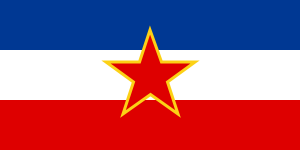That a Serb Question in Yugoslavia was really acute problem became clear on April 24th, 1987 [...]
Tuđman
A new 1991 year started with a fear of the escalation of the political conflicts into a...
Interview with Professor Sean Gervasi, Institute of International and Economic Problems, Belgrade, Yugoslavia. Recorded on February 24th,...
Stories of resistance to Croatia’s fascist Ustasa can help counter revisionists’ attempts to rehabilitate the World War...









